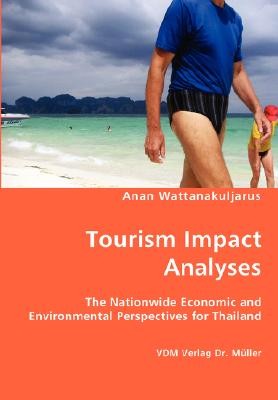
- We will send in 10–14 business days.
- Author: Anan Wattanakuljarus
- Publisher: VDM Verlag Dr. Mueller E.K.
- Year: 2007
- Pages: 220
- ISBN-10: 3836426781
- ISBN-13: 9783836426787
- Format: 17 x 24.4 x 1.2 cm, softcover
- Language: English
- SAVE -10% with code: EXTRA
Reviews
Description
Tourism is more and more popular as a part of development strategy in developing countries due to three main motivations: tourism contributes to economic growth; tourism improves income distribution; and tourism develops and enhances the clean environment. Do these expected merits from tourism happen in every developing country? Does tourism growth reduce income disparity of the nation? Is tourism development pro-poor growth? Is tourism growth a 'green' development strategy? What are the major factors that determine the direction and size of the expected virtues? The book examines these questions in the economy-wide economic and environmental perspectives using a computable general equilibrium model for the case of Thailand - a country that considerably depends on tourism sectors. The book shows that tourism growth is not especially pro-poor or pro-agriculture and that tourism growth comes with high water consumption and wastewater production at least in the case of Thailand. The book is directed towards tourism and environmental policymakers in low-income countries. It is also addressed to economic researchers in tourism, development, environment, agriculture, and international trade.
EXTRA 10 % discount with code: EXTRA
The promotion ends in 20d.17:48:05
The discount code is valid when purchasing from 10 €. Discounts do not stack.
- Author: Anan Wattanakuljarus
- Publisher: VDM Verlag Dr. Mueller E.K.
- Year: 2007
- Pages: 220
- ISBN-10: 3836426781
- ISBN-13: 9783836426787
- Format: 17 x 24.4 x 1.2 cm, softcover
- Language: English English
Tourism is more and more popular as a part of development strategy in developing countries due to three main motivations: tourism contributes to economic growth; tourism improves income distribution; and tourism develops and enhances the clean environment. Do these expected merits from tourism happen in every developing country? Does tourism growth reduce income disparity of the nation? Is tourism development pro-poor growth? Is tourism growth a 'green' development strategy? What are the major factors that determine the direction and size of the expected virtues? The book examines these questions in the economy-wide economic and environmental perspectives using a computable general equilibrium model for the case of Thailand - a country that considerably depends on tourism sectors. The book shows that tourism growth is not especially pro-poor or pro-agriculture and that tourism growth comes with high water consumption and wastewater production at least in the case of Thailand. The book is directed towards tourism and environmental policymakers in low-income countries. It is also addressed to economic researchers in tourism, development, environment, agriculture, and international trade.


Reviews